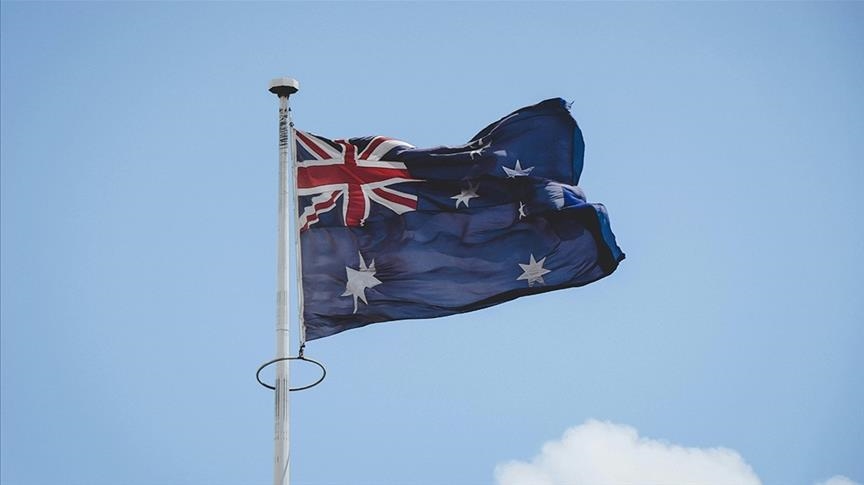Afghanistan condemns, Australia refrains from endorsing US strikes on Iran
Japan expresses 'grave concern' while South Korea's President Lee to skip NATO summit in the Netherlands

ANKARA
Afghanistan on Sunday condemned the US strikes on Iranian nuclear facilities, while several other Asian nations expressed "concern" over the latest escalation in the Middle East.
Kabul condemned the US attack on Iran’s nuclear sites and expressed "concern" over the growing instability in the region.
Calling the strikes by the US a violation of Iran's national sovereignty and territorial integrity, Afghanistan urged diplomacy to resolve the issues.
The situation in the region further deteriorated after US President Donald Trump announced Sunday that American forces carried out "very successful" airstrikes on three Iranian nuclear sites, amid growing fears of a broader conflict in the region.
The US targeted Iran’s nuclear sites with six bunker-buster bombs dropped on the Fordo facility with B-2 stealth bombers, along with dozens of submarine-launched cruise missile strikes on the Natanz and Isfahan facilities.
Following US strikes, Iran called on the UN Security Council to hold an emergency meeting to condemn the US aggression and to hold accountable those who violate international law.
China and Pakistan also condemned the US attacks on Iran.
Earlier, Australia refrained from endorsing the US strikes in Iran and called for de-escalation.
A government spokesperson, quoted by ABC News, said Canberra has taken note of US President Donald Trump's statement emphasizing that "now is the time for peace."
"The security situation in the region is highly volatile. We continue to call for de-escalation, dialogue, and diplomacy," the unnamed spokesperson said.
However, the spokesperson did not endorse the US airstrikes on Iran’s nuclear sites, the broadcaster added.
"We have been clear that Iran’s nuclear and ballistic missile program has been a threat to international peace and security," said the spokesperson.
Japan refrains from commenting on US strikes but expresses 'grave concern'
Japan expressed "grave concern" over the US attacks on Iranian nuclear sites, but Prime Minister Shigeru Ishiba refrained from commenting on whether Tokyo supports its security ally, according to Kyodo News.
Ishiba said that de-escalating the situation was "the most important," adding that no impact on energy supplies has been confirmed so far.
New Zealand Foreign Minister Winston Peters, in a statement on X, called the ongoing military action in the Middle East "extremely worrying" and urged avoiding further escalation and resolving issues through diplomacy and dialogue.
New Zealand will also send a plane on Monday to help any of its nationals stranded in Iran or Israel, Defense Minister Judith Collins has said, according to RNZ News.
The Philippines’ Department of Foreign Affairs issued a statement, saying that Manila is “greatly concerned” over the US involvement in the Iran-Israel conflict, urging all parties to “take the path of diplomacy and avoid further escalation.”
South Korea's president to skip NATO summit
South Korea's Foreign Ministry expressed its hope for a quick reduction of regional tensions following the US strike on nuclear sites in Iran, according to Seoul-based Yonhap News.
Amid the escalating tensions in the Middle East, South Korea's President Lee Jae Myung will not attend the NATO summit scheduled for the coming week in the Netherlands.
Although South Korea is not part of NATO, Seoul, along with Japan and Australia, has been invited to the summit of the military alliance in the past few years.
Separately, Kashmiri Hurriyat Conference leader Mirwaiz Umar Farooq also condemned the US attack on Iran, calling for justice for “the people of Palestine” and dialogue for “resolutions and peace.”
“Violating all international rules, after Israel US aggression on Iran has further pushed the Middle East to the edge of destruction and chaos,” Mirwaiz Umar Farooq wrote on X.
Hostilities broke out on June 13 when Israel launched airstrikes on several sites across Iran, including military and nuclear facilities, prompting Tehran to launch retaliatory strikes.
Israeli authorities said at least 25 people have been killed and hundreds injured since then in Iranian missile attacks.
Meanwhile, in Iran, 430 people have been killed and more than 3,500 wounded in the Israeli assault, according to the Iranian Health Ministry.
Anadolu Agency website contains only a portion of the news stories offered to subscribers in the AA News Broadcasting System (HAS), and in summarized form. Please contact us for subscription options.







